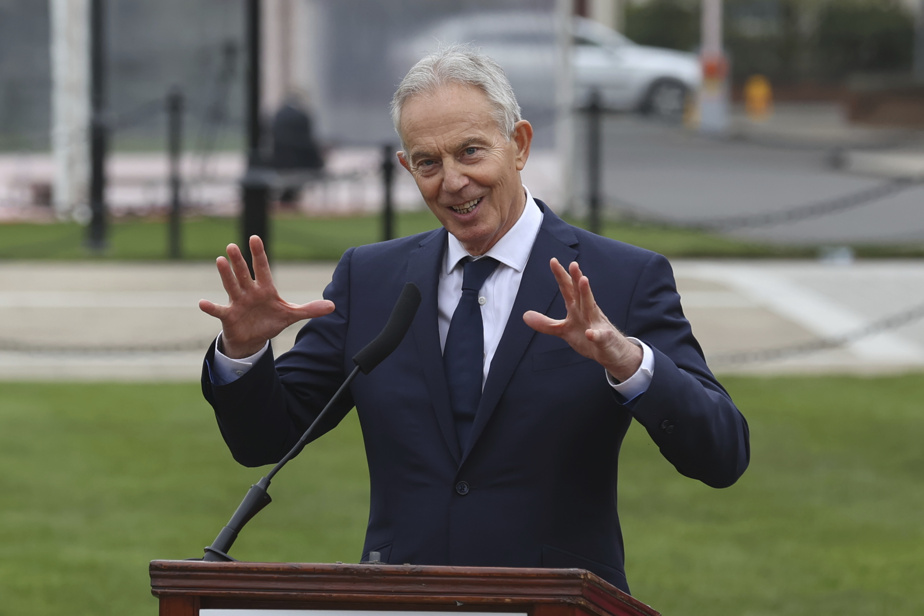(Belfast) Political leaders who brokered peace in Northern Ireland in 1998 on Monday called on the province’s main Unionist Party, which has been boycotting local institutions for a year, to agree to form a new government.
“The one thing I would say to leaders today is that I think when you step back and reflect, you know deep down what’s the right thing to do, and you should just move on. and do it,” said Tony Blair, British Prime Minister in 1998.
He was speaking at a conference in Belfast, alongside former US President Bill Clinton, on the 25th anniversary of the Good Friday Agreement that ended three decades of violence in Ireland North.
“I really plead and deeply hope that the Democratic Unionist Party (DUP) will reward us all by staying on the path [of peace] with us,” said Bertie Ahern, former Prime Minister of Ireland.
“Because the people of Northern Ireland need them, and I think the people of the island need them. We all need to work together,” he added.
The DUP has been boycotting local institutions in Northern Ireland for more than a year to protest the consequences of Brexit in the province, preventing the formation of a government with shared powers between Republicans and Unionists, as provided for in the agreement of Good Friday.
And he is not satisfied with the agreement reached at the end of February between the United Kingdom and the European Union on the rules of post-Brexit trade.
“Quick fixes without a solid foundation will do a disservice to those trying to make institutions work,” DUP leader Jeffrey Donaldson said after an interview with Bill Clinton.
The former leader of Sinn Fein, the Republican Party and former political arm of the Irish Republican Army in Northern Ireland (IRA), Gerry Adams urged the DUP to “shake it up”, in order to acknowledge the new reality in the province.
For the first time last year, Sinn Fein came out on top in the election, raising the prospect of a referendum on the reunification of the island.
“Take part of the institutions, and then discuss them, revise them, review them, whatever you want, but first go where your constituents have taken you,” he argued.
Negotiated with active American participation, the peace agreement signed on April 10, 1998 ended three decades of deadly clashes between Unionists, mainly Protestants, and Republicans, mainly Catholics, with the involvement of the British army.
Current US President Joe Biden, who was in Belfast last Wednesday for the anniversary of the agreement, also called on local political forces to overcome their divisions. But the unionists opposed him an end of inadmissibility, accusing him of partiality.

